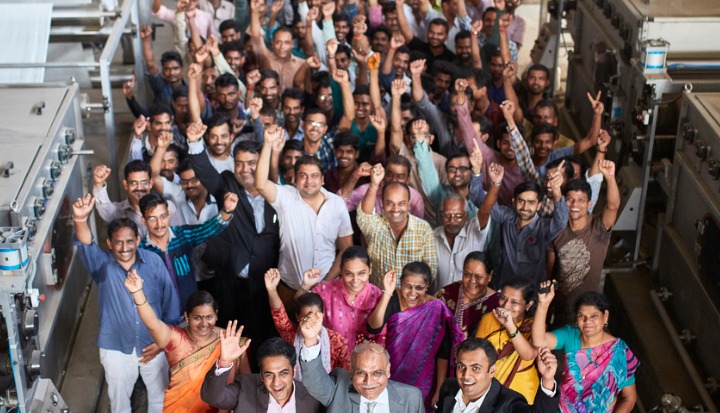It is estimated that there are more than one billion workers in the world today – approx 1/3 global workforce – earning less than they need to maintain a decent standard of living. Living minimum has been determined As defined by the International Labor Organization (ILO), as a wage level that provides a decent standard of living for workers and their families. This includes the ability to meet essential needs such as food, water, housing, education, health care, transportation, clothing, and coping with unexpected expenses.
However, implementing a living wage is a challenge, especially in different economic contexts. One promising solution to contribute to the living wage agenda is the transition to digital wage payments, which offer greater transparency, security and data accuracy for both workers and businesses.

Digital payroll has the potential to stabilize revenues, increase profits and improve employee financial security.
Cash payments are vulnerable to errors and exploitation. Digital wages do the opposite transparency financial transactions, allowing both companies and employees to accurately control salary payments. This leads to fewer errors and reduces the use of compensation mechanisms as workers are fully compensated and have a more stable income to meet their basic needs.
In addition, digital wage tracking reduces vulnerability to theft and exploitation, especially for women. This enhanced safety can boost employee morale and increase productivity, leading to higher earnings and a better standard of living.
Social and Labor Convergence Program (SLCP) 2023 Impact Reportpoints out that facilities using digital payment methods exhibit less legal non-compliance, especially in the timely payment of wages and the provision of appropriate social security contributions. With more timely and regular payments, employees can more accurately manage household cash flow and schedule time-sensitive obligations such as utility bills or loan payments. This can potentially increase the employee’s financial stability and reduce reliance on additional borrowing, leading to greater financial security in dealing with emergency payments.
Digitized payroll management systems provide new information with the potential to financially empower employees.
Companies have access to accurate records of payroll transactions, which is essential for analyzing trends, identifying inequities, and developing effective strategies to support living wage practices. For example, H&M preliminary findings shows that their wage management systems have contributed to the reduction of gender wage inequality in factories.
This wealth of financial transaction data is critical in the early stages of adopting a living wage agenda. But these records also have the financial capacity to access more tailored financial services such as long-term savings options, insurance and responsible credit products to support workers’ decent living standards.
We call on industry leaders to recognize the transformative potential of digital payments in ensuring fair wages and promoting economic justice.
In 2021 approx 165 million private sector workers those without bank accounts were paid only in cash. That same year, a study revealed this two-thirds of garment workers In Jordan, they continued to receive their wages in cash, even though the industry accounted for about 23% of the country’s total domestic exports.
as UN-based “Better Than Money Alliance” As evidence continues to build on the contribution of digital wage payments to a living wage, we invite private sector leaders to share their experiences of living wage and digital payment system initiatives. We also welcome organizations interested in providing employees with access to additional digital financial services to partner with us in developing industry guidance for a responsible approach to keeping payroll digital.
Authors:
Jean Pascal Mvondo, African Head of La Francophonie, Better Than Cash Alliance at the UN
Samer Baker, Digital Payments Specialist, UN-based Better Than Cash Alliance
Katherine Rickard, Corporate Digital Payments Specialist, UN-based Better Than Cash Alliance

